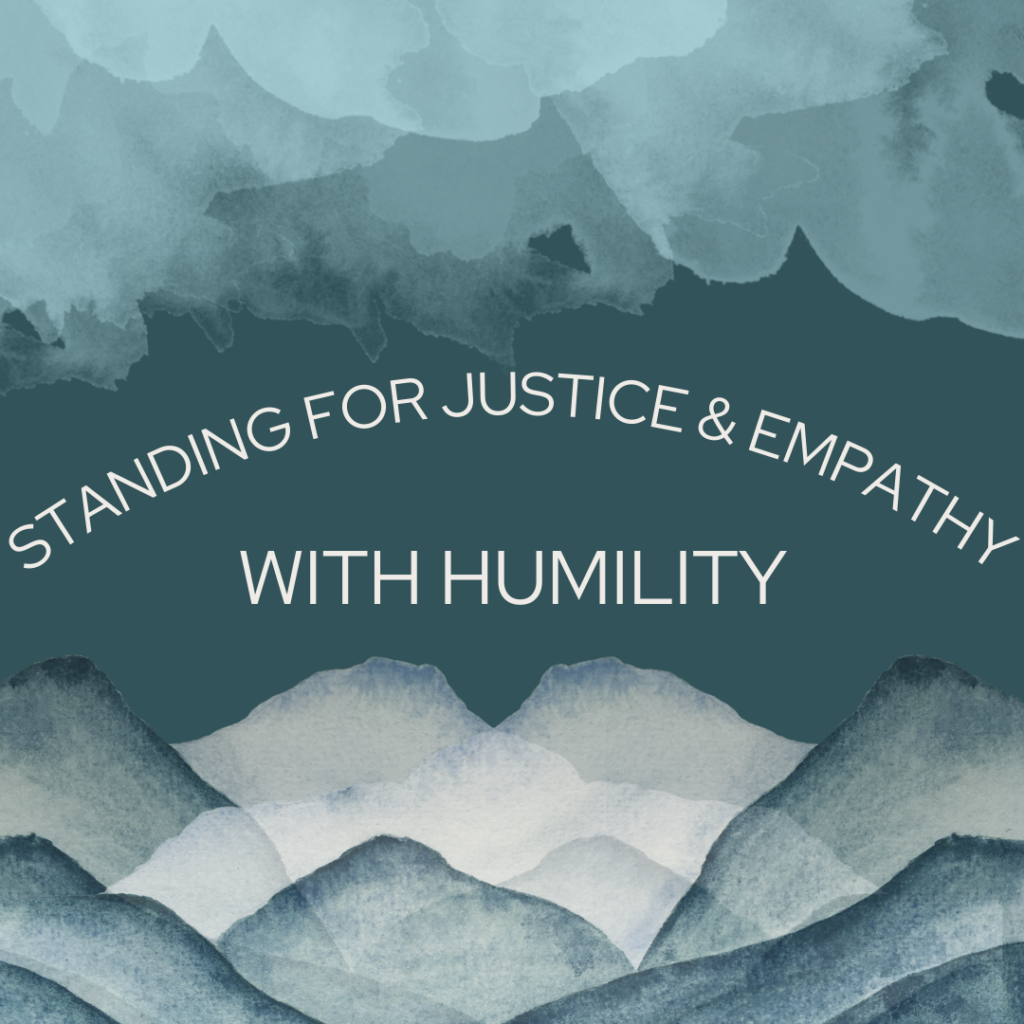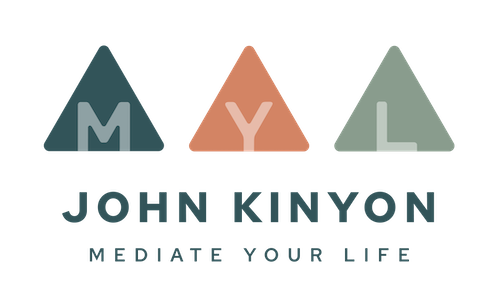Standing for Justice and Empathy with Humility

In the delicate balance between standing for justice and promoting empathy, I struggle with how to hold these two together simultaneously.
At the heart of this challenge for me is the recognition that when calling out (or “calling in,” as it’s now said) what I see as an injustice, it’s easy to fall into promoting an “enemy image” of the oppressor, which in turn can trigger defensiveness and a closing off of openness and understanding. The answer I’m exploring is to cultivate a perspective rooted in authentic humility.
Injustice and oppression are as old as humanity has been around on this planet – the brutal domination, subjugation, exploitation, violence and inflicting of suffering on one person or group by another, from generation to generation through the millennia. We know this to be a very real and harsh reality in the human world, including the committing of genocide on ourselves. It is easy to forget we humans are the super predator of the animal kingdom, perpetrating great cruelty on other animals and great harm to the natural world. And there are those of us who do not feel even the desire to care for others. Yet we also know how closely this is linked with experiencing a profoundly traumatizing absence of empathy and care in childhood. The healing remedy is not more of what disconnects, fractures, and fragments us. It is empathy and care for everyone’s needs and well-being, even as we oppose people acting from the absence of this.
Seeing that we all play the role of “actor” at times when someone feels hurt by us, however small or big the scale, fosters connection and understanding. When I genuinely recognize and remember that I sometimes say or do things that lead to some degree of pain for others, or in some way I am not able to hold another’s needs with care, it changes how I speak out when I see it happening, in my life or in the world.
If I don’t remember this humility, my judgment of a person or group as being unjust or oppressive becomes a separation. I lose the feeling of empathic connection. I am disconnected from my connection with humanity, with life. I suffer, and by losing connection, I lose the power to create positive change. In the larger world, the compassionate use of force to defend and protect can become violence, punishment, and even cruelty and horror.
Can I recognize and acknowledge that I and everyone, in one way or another, partakes in this legacy, and that everyone is doing their best to meet the universal needs we all share, even when the means may be harmful or destructive? From this place, can I stand powerfully for mutual care and the interconnectedness and interdependence of our well-being? My power is in expressing to be heard, my perception and position, and trying to understand others with whom I disagree. It is in shifting my attention to feeling and connecting deeply in my body, and then acting to support the needs of all being met.
For peace and well-being in our own lives, and for the sustainability and well-being of all of us on this planet, I believe it’s essential that we courageously take a stand for justice, and that we do it with empathy and humility.
If you listen to the Reconciliation and Healing conflict map in my Mediate Your Life app, you’ll find a useful, structured example of the dialogue between the “Actor” and the “Receiver” of pain. This framework allows for the exploration of unresolved emotional pain and hurt, creating a space for healing and connection.
